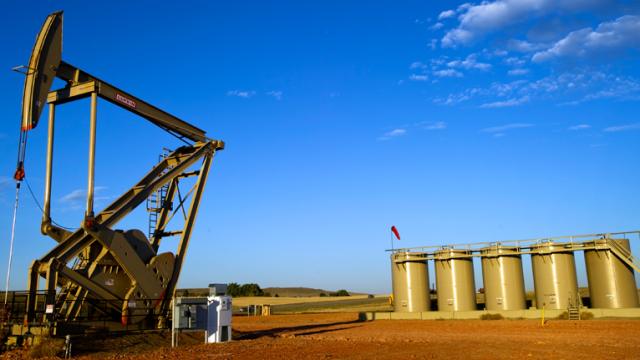Remember When People Said North Dakota Didn't Need To Cut Oil Taxes?

Remember back in April when people were talking seriously about needing to slow down North Dakota’s oil boom? Remember when they said that we didn’t need to cut and simply North Dakota’s third-highest-in-the-nation oil extraction/production taxes?
About that.
Department of Mineral Resources Director Lynn Helms says the state may need to adjust some of its budget priorities due to falling oil prices:
Helms says North Dakota light sweet crude traded as low as $66.25 a barrel Wednesday. A barrel traded at more than $90 a barrel as recently as June.
Helms says falling oil prices could force North Dakota to reevaluate its budget for the next biennium. He says that preliminary budget is based off of projections that put the price of North Dakota oil at $90 a barrel.
Legislators tell me that the budget is based more on $85 dollars per barrel, but still.
Also, one of the independent oil operators in the Bakken says the drop in prices is putting him in a pinch. “I’ve lost a third of my income and my expenses are still the same,” he told me earlier today. “The big boys will be fine for a while, us little guys can’t take this for too long.”
The state may not be able to take it for long either. Let me illustrate why.
In recent sessions legislators have been aggressive with spending, because projections have forecasted aggressive revenue growth (if anything the projections have been way low, missing last biennium by nearly $2 billion). By the end of the current biennium we’ll have spent roughly 62 percent more than last biennium.
Almost all of the spending increases are paid for by oil tax revenues.
We can debate about how much of that spending increase was needed, but that is beside the point. If you slow down the oil boom, you slow down the revenues.
Given the aggressive spending some are planning for – including the proponents of Measure 5 who want a big chunk of oil tax revenues for conservation – slowing revenues are going to be a tremendous headache.
What could have mitigated this problem was Legislators and Governor Jack Dalrymple agreeing to cut and simplify the state’s oil production taxes. There was an effort to make it happen in both the 2011 and 2013 session, but it failed both times. During the 2013 session, lawmakers actually raised oil taxes.
The shallow-thinkers will cry about “tax cuts for big oil,” but let’s face it. The oil producers would be a lot more resilient to falling prices if majorities in North Dakota’s political leadership hadn’t been so intent on killing the goose with the golden eggs.




